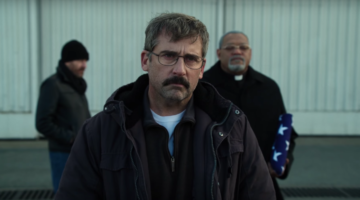Review: Only Yesterday
Only Yesterday is incredibly layered for an animated feature, but involves a look backwards. Though the film is finally being released in English, (subbed and dubbed, though the dubbed version is the one that we watched), it was originally released in Japan in 1991. In addition, the film is set in two time periods, both earlier, the early eighties and the mid-sixties.
The film is from Studio Ghibli, and was directed and written by Isao Takahata (whose most recent film was the lush The Tale of Princess Kaguya). Takahata cleverly mixes the past and present in the life of Taeko (Daisy Ridley), a mid-twenties office worker in Tokyo. Taeko takes a trip to the countryside to mirror her frustration at not being able to go there in her childhood.
What is more is that the story somehow manages to share two parallel stories at once, that of a young Taeko growing up in the city, and adult Taeko in the countryside with Toshio (Dev Patel) whom she barely knows, and yet with whom she feels a deep connection.
The most interesting aspect of Only Yesterday aside from its adult theme is the way that Takahata presents the animation in contrast for the two (but really converging) stories. The young Taeko’s world is a shock of white, almost crude drawing, (though not quite), far more like Kaguya but somehow feeling naturalistic and not like a fairy tale.
The animation of the later era is stunningly realistic, (almost impossibly so for a film released in the early 1990’s), but tinged with a sense of darkness and dreamlike atmosphere. It would be too simplistic to say that the early Taeko is the day and the elder version is the night. Though it does seem as though the times of day are significant, as the maturation process of a girl in a level, even-handed way seems to be from another era of movies. It’s tough to believe that this sense of place is present in a children’s movie (supposedly) being released in the year 2016.
One more surprising feature of the film is its frank talk of sexuality and of periods. The discussion of being “early bloomers” is not played for laughs, (well, except from the perspective of the boys, clumsily unaware), but is still handled gracefully and surprisingly in a film of this type.
Ultimately, this is a film that handles the affairs of a woman delicately. It is deceptively straightforward (an expected detour towards magic realism in the realm of When Marnie Was There is thankfully avoided). But there are clues sprinkled in both sections about the direction in which Taeko is going, implications are more powerful than statements.
Only Yesterday suggests that looking to the past is necessary when deciding to face the future. We are taught to experience each day as better than the one before, as that was only yesterday.
[star v=45]







